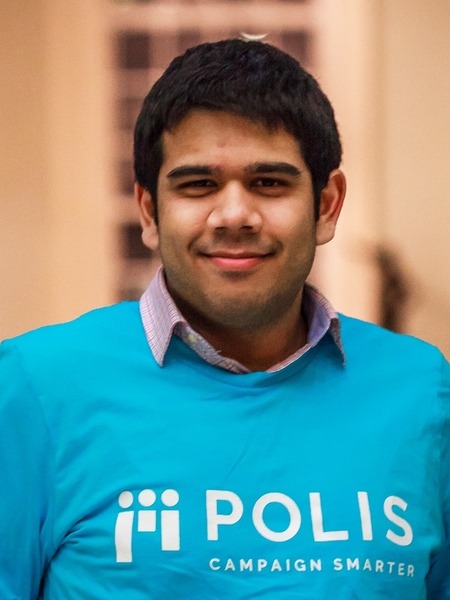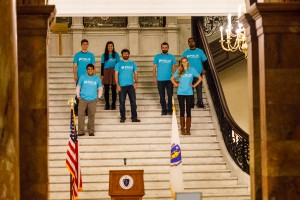Deluge of Data Drives Politics
-
-
slice.mit.edu
Filed Under

Recommended
This presidential campaign is like no other—just maybe not in the way you think. Behind all the debates, pundits, and polls is more data than ever before. Presidential campaigns are able to dig into information on potential voters and make plans that will, they hope, lead to victory. But what if small races, like that of city council, had this same kind of data? How could that information impact local politics? Emad Taliep ’14, data scientist for the political canvassing app Polis, is working to find that out.
“Politics has big problems. Data has big problems. I’m the kind of person who likes making a difference that radiates out to entire populations,” he says. Taliep says he was drawn to data science and politics because of his desire to solve big problems, making Polis a perfect fit. With Polis, Taliep uses data to address fundamental problems that can belie small, local political campaigns—like reaching voters. “We try to take some of the logic big campaigns use and translate it to smaller campaigns who don’t have the same kind of money,” Taliep says of the app.
Launched in 2014, Polis provides political insight by collecting information from canvassers in real time. Canvassers can use the app to note the houses they’ve visited and the responses of voters they’ve talked to; Polis then makes suggestions for moving forward. “We look at the data and decide whether it makes sense for canvassers to go back out, or decide when to re-knock at a certain house,” Taliep explains. “It’s all about trying to win elections by giving people access to a good ground game."

Taliep says he’s currently collecting data and creating models to decide ideal walking routes through neighborhoods. “We want to make sure people stay on good beaten paths and cut through neighborhoods in the right way to meet the most voters,” he says.
Polis has already claimed wins in local elections in Massachusetts, including that of Nadeem Mazen ’06 who used the app for his campaign and won a seat as Cambridge City Councilor. Taliep says the MIT connection didn’t bring Mazen to Polis, but he isn’t surprised by his choice. “I think it’s a testament to the MIT culture—the willingness to try something cutting edge like this,” he says.
Although Polis staff doesn’t have plans to get involved in this year’s presidential election, the company has already signed on four candidates running for US congress and number of local races for this election cycle.







